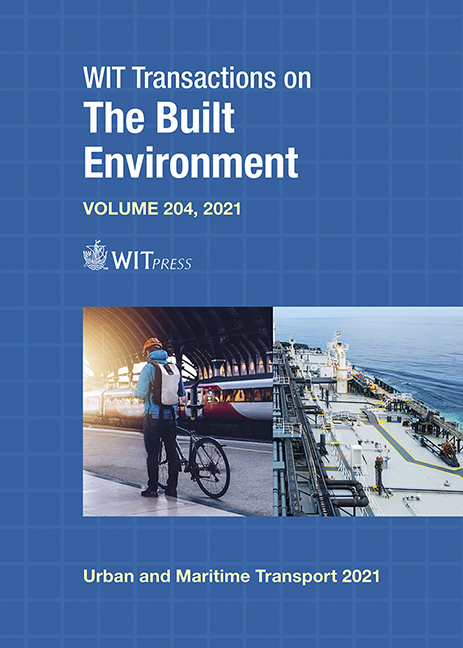STRUCTURAL FACTORS FOR A THIRD-GENERATION PORT: PLANNING INTERVENTIONS FOR RESEARCH AND DEVELOPMENT IN GIOIA TAURO, ITALY, TEN-T NODE
Price
Free (open access)
Transaction
Volume
204
Pages
12
Page Range
67 - 78
Published
2021
Paper DOI
10.2495/UT210061
Copyright
Author(s)
FRANCESCO RUSSO, CORRADO RINDONE
Abstract
Maritime transport is a complex system that plays a relevant role in the supply chain. Commercial ports are strategic nodes that facilitate international interchanges of goods at the global level. The port’s efficiency influences the choices on the entire transport system. By considering the strategic role played by ports, it is necessary to define a set of material and immaterial interventions that support its growth. This paper focuses on the Gioia Tauro port, one of the main hub ports in the Mediterranean Sea. According to UNCTAD’s classification based on the definition of port-generation, the paper analyses the port’s potentialities in relation to the possibilities to increase the production of value-added other than the one linked with transport activities. The strategic perspective for the Gioia Tauro is to become a full third-generation port. In order to achieve this objective, some material and immaterial intervention are needed. In particular, this paper focus on the contribution of research development for the port’s growth. The territory around the Gioia Tauro port is the Calabria, a region in Southern Italy and Europe. Transport, agri-food and automotive are the main productive sectors in the port area. The development of the research, like the most advanced best practices in maritime transport at the international level, should support the productive sectors. Universities and research centres present have a low level of interchanges with the Gioia Tauro port and productive sectors actually operating in the region. This paper contributes to defining a development perspective for Gioia Tauro port in order to realize a systematic connection between research and production. The strategic perspective comprehends a set of interventions aimed to activate and consolidate interchanges of knowledge and skills among public administrations and private companies.
Keywords
maritime transport, research, regional planning, third-generation port





